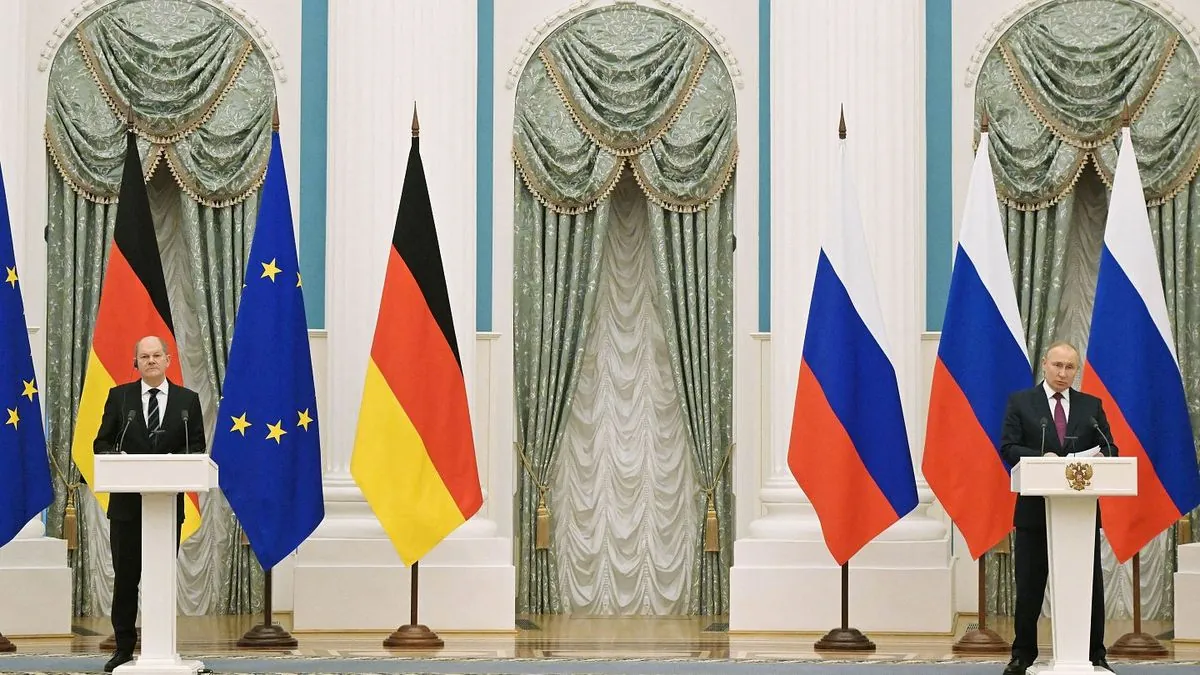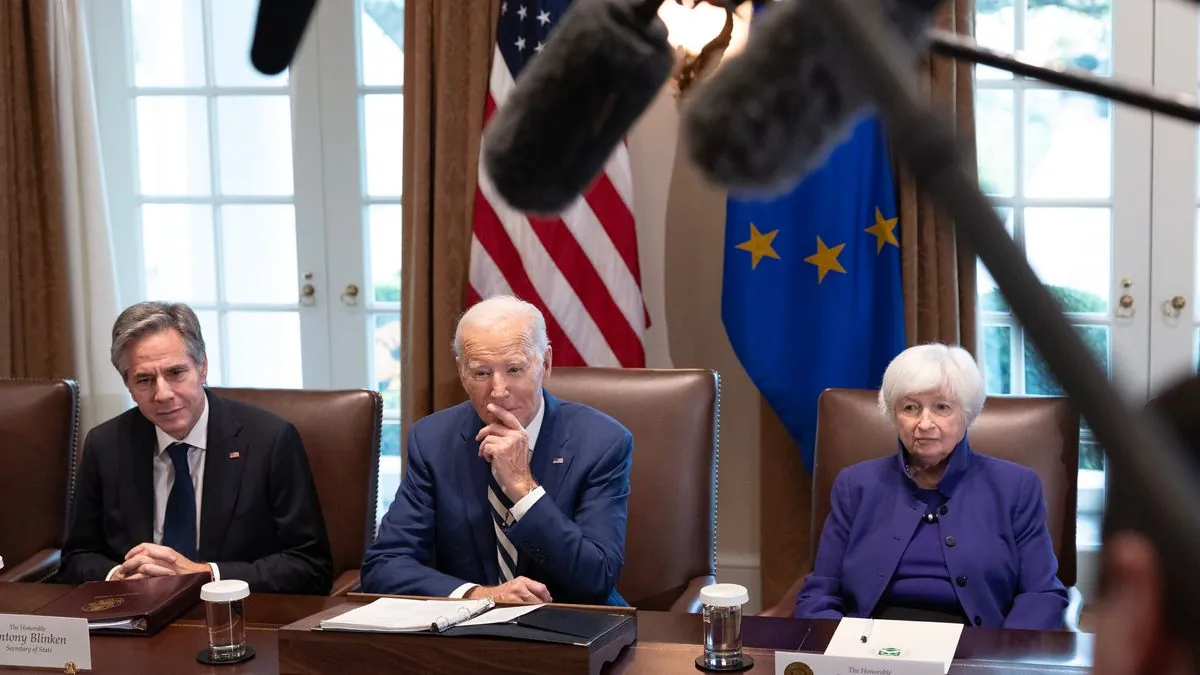Germany's Energy Policy Shift: US Sanctions on Nord Stream 2 in Focus
Germany's evolving stance on Russian energy and support for Ukraine raises concerns. US Congress considers extending sanctions on Nord Stream 2, while the Biden administration's position remains uncertain.

Russia's use of energy as a geopolitical tool against Europe became undeniable in late 2021 and early 2022 when it restricted natural gas supplies to deter Germany and other European nations from supporting Ukraine. To prevent future energy-based aggression, the United States is considering permanent sanctions on remaining Russian gas pipelines to Europe, starting with the extension of existing sanctions on Nord Stream 2.
Nord Stream 2, a 1,230-kilometer-long natural gas pipeline connecting Russia to Germany under the Baltic Sea, has been a focal point of controversy. With a capacity to transport 55 billion cubic meters of gas annually, the pipeline's construction, which began in 2018 and was completed in September 2021 at a cost of approximately 9.5 billion euros, has raised significant geopolitical concerns.
While attention has shifted to the reliability of U.S. support for Ukraine, recent developments suggest that Berlin's stance may be equally crucial. Germany's historical policy of accommodation towards Russia, pursued by Chancellors Gerhard Schröder, Angela Merkel, and Olaf Scholz, has been a subject of criticism.
This policy, rooted in concepts like Neue Ostpolitik and Wandel durch Handel, aimed to foster stable relations and democratic reforms in Russia through increased commercial ties. However, unlike former Chancellor Willy Brandt's original Ostpolitik of the 1960s, which balanced engagement with strong Western deterrence, recent German administrations allowed their defense capabilities to deteriorate.

Each German leader contributed to this approach:
- Schröder signed a controversial energy deal with Russia shortly before leaving office in 2005.
- Merkel pushed forward the Nord Stream 2 project despite Russian cyberattacks and assassinations in Europe.
- Scholz initially resisted sending weapons to Ukraine, offering 5,000 helmets instead.
Scholz's Zeitenwende speech on February 27, 2022, promised a bold reorientation of German foreign policy. However, recent actions, such as slashing military aid for Ukraine in the draft 2025 budget, suggest a retreat from this stance.
"We are living through a Zeitenwende. That means that the world afterwards will no longer be the same as the world before."
Concerns about Germany's future energy policy persist. While Germany swiftly replaced Russian gas supplies, there's pressure to restore commercial ties with Russia, especially in the energy sector. This pressure intensified following the shutdown of Germany's last nuclear power plants last year.
The United States can play a crucial role in preventing Germany from reverting to its previous Russia-friendly policies. In 2019, the U.S. Congress passed limited sanctions on Nord Stream 2, which are set to expire at the end of this year unless renewed.
The Biden administration's stance on sanctions renewal remains uncertain. In late 2021, it waived sanctions on Nord Stream 2 in exchange for promises from Berlin to impose sanctions if Russia used energy as a weapon. However, these promises were not fulfilled when Russia undersupplied European gas storage.
Bipartisan support exists in Congress for extending the sanctions. The Senate Armed Services Committee and Banking Committee have reportedly approved the extension via an amendment to the annual National Defense Authorization Act.
To ensure European security and prevent Russian energy interests from regaining influence, it's crucial for the Biden administration and Congress to support the extension of Nord Stream 2 sanctions. Additionally, new laws prohibiting former public officials from working for Russian state-owned enterprises could further strengthen this stance.
As the November 2024 U.S. presidential election approaches, American policy towards Europe should reconsider its focus on Berlin's opinions. The era of Gazprom's domination in Europe must end, and neither German business interests nor pro-Kremlin political factions should be allowed to undermine European stability again.



































